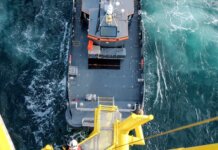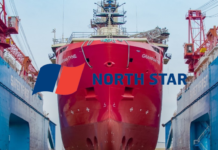ArcVera Renewables, a Colorado-based provider of consulting and technical services for wind and solar projects, recently published a benchmark report that aims to deliver a thorough analysis of the performance of its wind energy resource assessment (WERA) practice across a range of operating wind projects.
Based on a dataset of 31 projects the company has worked on in the U.S., combining 3.5 GW of installed capacity and 212 years of operation, the report provides a comparison between the pre-construction assessments, using ArcVera’s WERA practices, and the actual post-construction energy production data.
The results of the study show that ArcVera’s wind assessment techniques are accurate to within about 1%, on average, of reported project P50 energy production, which becomes near-zero mean bias after accounting for grid curtailment. In addition, the benchmark study indicates that ArcVera’s wind assessments have lower individual project performance variation than in the past. With an average project performance bias close to zero, ArcVera’s advanced methodology yields an average project performance of 98.8% for the 31 projects. Given that estimates of grid curtailment losses, typically at 1% to 1.5%, are not corrected for in most benchmark assessments, ArcVera’s overall project performance is effectively 100% in terms of accuracy, the company says.
In addition, the results show that the risk of building a wind farm that significantly over- or under-performs is limited by applying ArcVera’s techniques, with a 4.7% standard deviation of project performance.
“For over 30 years, ArcVera Renewables has provided finance-grade consulting and technical services for wind and solar energy clients worldwide, including the very first bankable WERA delivered in 1989 in California,” says John Bosche, president and principal engineer at ArcVera. “Our track record is second to none, and we wanted to make public the data that supports that claim.”




